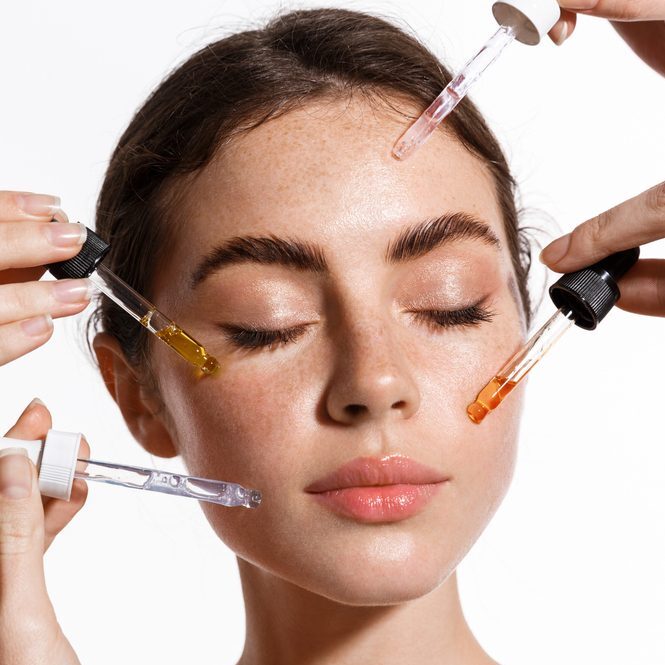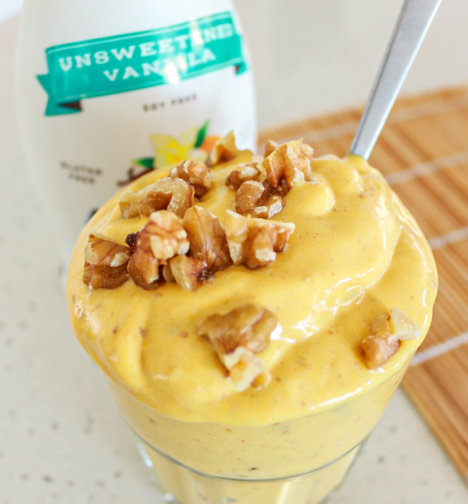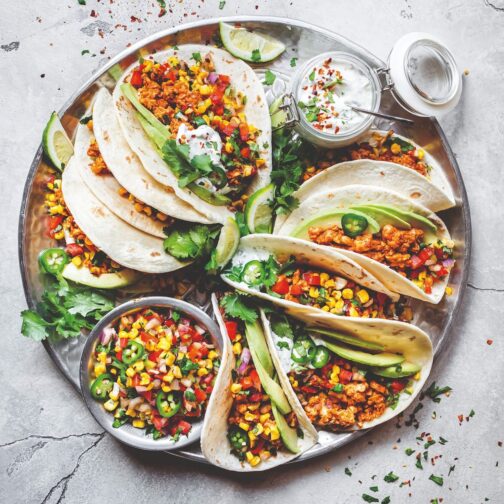
It’s the not-so-secret ingredient to plump skin, healthy hair, and strong nails. But what is the best way to boost this critical building block?
Collagen is the most plentiful protein in your body, made from incredibly strong and flexible fibres. This dense connective tissue allows our bodies to move and stretch, while also holding everything together. So, given our bodies are already producing this wonderful, natural ‘super glue’, why is it such a popular beauty product? It’s because collagen begins to diminish over time, and lifestyle factors such as excess sun exposure, cigarette smoking, high stress, and refined sugar consumption expedite this process. And while collagen is naturally synthesised in our bodies, it can also be derived from animals and then added into anything from gummy bears, coffee creamer, and effervescent tablets to protein powders and face creams.
But are these products effective and can they be ethical? To explore further, let’s first make the distinction between the two primary ways collagen is used: internally via supplementation and transdermally via topical applications.
COLLAGEN SUPPLEMENTS
When it comes to efficacy, the answer isn’t totally clear. It seems that for every study you find supporting the use of collagen supplements, you can find another contradicting it. It’s important to understand that research on collagen supplements is only just emerging and not enough studies have been done to support the claims found on many supplements. For a sector valued in the billions, it’s interesting that very little is actually definitive.
From an ethical perspective, all collagen peptide protein supplements originate from animal sources such as pigs (porcine), cows (bovine), birds (poultry), and what is referred to as ‘marine collagen’. While marine collagen is sometimes indicative of a seaweed source, it is most often derived from fish.
For those seeking a vegan supplementation option, there is no exact collagen protein replacement; however, there are many forward-thinking brands that have formulated incredible alternatives filled with collagen-boosting ingredients like zinc, silica, copper, manganese, proline, vitamin C, and vitamin E. We can think of these plant-based collagen products as builders – essentially a cocktail of ingredients that offer the building-block amino acids to support your body’s own natural collagen-making ability.

Image: Serg64 on Shutterstock
Even though right now cruelty-free supplement alternatives don’t downright contain any collagen protein, scientists have discovered a way to genetically engineer collagen proteins without the use of animals. These next generation developments promise vegan collagen alternatives that are functionally the same as animal collagen – made from modified yeast and a bacteria called P. pastoris. At the time of writing, genetically engineered vegan collagen protein supplements for internal use were not yet available on the market, but this technology is an innovation we can look forward to!
For now, collagen-boosting, plant-based supplements are the best ethical option. Vegan supplement brand Raw Beauty Lab posits that the benefits of plant-based supplementation far outweigh animal-derived counterparts. They say, “Animal collagen is only that – it’s just collagen. The antioxidants and anti-inflammatory effect you get from the phytonutrients in plants are not there in animal collagen supplements. So if you go out in the sun a lot without protection or if you have a build-up of free radicals in your skin, the animal collagen won’t protect your collagen from degradation, whereas vegan collagen boosters will help you produce your own collagen and help protect your collagen from degradation because of the additional antioxidants.”
Vegan collagen boosters will help you produce your own collagen and help protect your collagen from degradation because of the additional antioxidants.
TOPICAL COLLAGEN
When it comes to topical skincare products containing animal collagen, there simply have not been enough clinical tests and the benefits are widely debated. However, for skincare efficacy, it’s crucial to consider product penetration and delivery. Traditional collagen molecules derived from animals are very large, and even if broken down into fragmented hydrolysed collagen, these molecules are still not likely to reach the lower layers of the skin where they could impact cellular changes.
Thankfully, the same cutting-edge technology being explored for ingestibles is already available in topical products, and a handful of creative beauty brands are breaking new ground. Edible Beauty Australia, Algenist, Truly, and Pacifica all offer skincare products enriched with animal-free collagen proteins derived from a microbial fermentation process. Truly states on their website, “One of the top benefits of vegan collagen is that its molecules are small enough to penetrate the top layer of your skin, unlike animal collagen which cannot.” Beyond using topical products containing vegan collagen, you can always reach for tried-and-true collagen-boosting ingredients such as vitamin C, which is clinically proven to stimulate your skin’s own biosynthesis of collagen.
Vegan collagen … molecules are small enough to penetrate the top layer of your skin, unlike animal collagen which cannot.
EAT YOUR COLLAGEN BOOSTERS!
Because skin is your body’s largest organ, your best bet is to adopt a whole-body approach to skin health. When you are nourishing your body from the inside out with colourful plant foods, your skin will reap the benefits. Remember, your body can make fresh collagen naturally — but it needs the necessary amino acids to do so! Perhaps the most effective (and delicious) way to receive key nutrients is to enjoy a balanced diet full of collagen-rich foods like citrus, berries, capsicum, leafy greens, beans, broccoli, and tomatoes.
***
If you feel drawn to add a supportive, collagen-boosting internal supplement, it’s heartening to know that there are numerous ethical vegan options on the market. Many of these boast a bevy of benefits beyond increased elasticity and glowing skin, such as joint health, hormone stability, and immune support.
The added benefit of opting for vegan collagen builders over animal-derived collagen is that the plant-based alternatives are made with adaptogens and concentrated ingredients that reverse oxidative damage to boost benefits. As with all marketing claims found in the beauty and wellness sector, stay away from anything claiming to be a ‘quick fix’ or an instant cure-all.
Cover image: Lyubov Levitskaya on Shutterstock





















